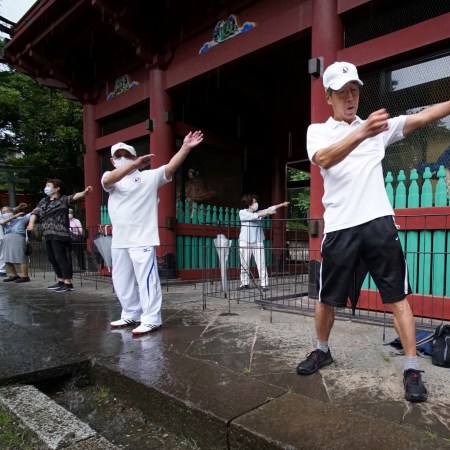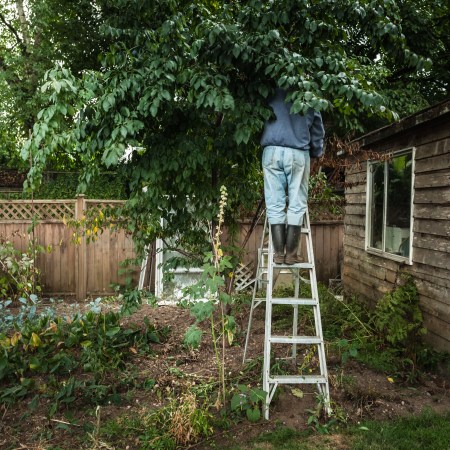According to a new study published in the British Journal of Sports Medicine, and reported by The New York Times, walking for just 11 minutes each day can tangibly protect the body from the mortality risks of hours spent sitting in front of a computer. Researchers accessed information from nine recent studies, in which over 50,000 middle-aged (or older) people from the United States and Europe wore activity-tracking accelerometers. Many of these subjects were big-time sitters, averaging 10 hours a day.
The scientists then studied death registries from the last decade, and cross-referenced lifestyle data (hours spent sitting, minutes spent moving), with life span information. They discovered that those in the top third for sitting and bottom third for activity were 260% more likely to die a premature death than those who sat less and moved more. In short: A sedentary lifestyle is directly related to poor longevity.
That might seem somewhat obvious. The CDC has repeatedly informed Americans that sitting is a public health issue. Many trainers have adopted the catchy (if inaccurate) mantra that “sitting is the new smoking.” We know that too much sitting disrupts the body’s ability to break down body fat, slows metabolism and elevates blood pressure. And during the COVID era, when many of us are spending time working from the couch, sitting is wreaking havoc on the back, neck and shoulders.
But this study also used its extensive data collection for good, pointing out that it’s possible to mitigate the effects of sitting by exercising for a certain stretch of time each day. According to their numbers, the amount of exercise time that leads to the greatest statistical improvement in life span is 35 minutes. You don’t even have to run. An extended walk of just over a half hour will do wonders for your longevity.
That said, those who fell into the middle third of this study — people who sat a decent amount, but exercised a bit — displayed much better mortality stats than the unhealthiest group. These people, on average, exercised just 11 minutes a day. On days where you’re pressed for time, try to keep this in mind. You can definitely find 11 minutes. And don’t be surprised when that small break works wonders for whatever you’re hoping to get done. The impact of a foot pressing against the ground supplies blood directly to the brain. This boosts concentration in the short-term, and your memory in the long-term.
Now, we know it can make that “long-term” longer.
Thanks for reading InsideHook. Sign up for our daily newsletter and be in the know.


















